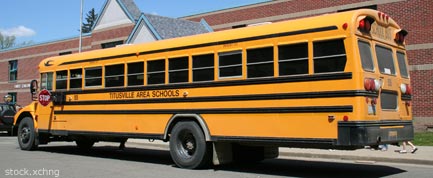Why Holding Kids Back in School Is Bad

My husband and I were faced seven years ago with a common parenting decision — should we enroll our daughter, who was born in late August, into kindergarten which started a few days after she turned 5, or wait a year until she was just 6. We approached the decision thoughtfully. She could be the oldest kid in class or the youngest kid, and we decided it would be better for her to be older; surely that extra year of life would give her social and academic advantages. Now, all these years later, it looks like our decision to hold her back was misguided. Economists Todd Elder of Michigan State University and Darren Lubotsky of the University of Illinois at Urbana-Champaign have recently shown that any difference in scholastic achievement seen in "latecomers" to school fades quickly, and is gone by grade eight. More disturbing, older kids in a classroom are often a detriment to younger ones; they make the younger kids look dumb and immature. As a result, younger kids are more often diagnosed with behavior problems and more often held back a grade. Age differences among children trying to learn weren't always a problem. Before there was school, kids learned on the fly. Way back when we were all hunters and gatherers, kids learned how to shoot a bow or dig a root, skills critical for survival, most often from older kids, many of them brothers and sisters. Once humans settled down, kids still learned from each other how to plant and how and tend livestock. And then when school was first invented, most kids were taught in one-room schoolhouses where all ages sat together and looked over each others' shoulders. And so the idea that older kids in the classroom are not a good idea … it just doesn't ring true. Any parent also knows about the hero worship of a 6-year-old for a 12-year-old. So the problem might not be older kids per se, but the fact that the age range in our current classrooms is simply not wide enough to be helpful. In fact, schools separate kids into artificial age groups with meaningless cutoff points. Is there really a difference in the ability to learn to read between a 5-year-old and a 6-year-old? Can all kids suddenly understand multiplication at age nine? Of course not. Because the human learning curve is individual and variable, and no two kids are alike. Also, one's age, in child years, could better be calculated like dog years. A child just turned 5 might be light years past a child only three months younger, but those differences, too, evaporate with time. Someone 48-years-old is not a whole lot different than someone 48.5-years- old. The economists also decided that holding a child back a year, or upping the age for entering kindergarten, is not a good thing because kids entering school later will also be one year late into the workforce and therefore make less money. My daughter constantly complains about our decision to hold her back. She wants to be with those older kids in the next grade, the ones going off to middle school this year. And she's tired of some kids thinking she flunked a year. Just wait until she realizes we robbed her of a whole year's salary.
- Video – Attention Training for Kids
- 10 Worst Hereditary Conditions
- Top 10 Mysteries of the Mind
Meredith F. Small is an anthropologist at Cornell University. She is also the author of "Our Babies, Ourselves; How Biology and Culture Shape the Way We Parent" (link) and "The Culture of Our Discontent; Beyond the Medical Model of Mental Illness" (link).
Sign up for the Live Science daily newsletter now
Get the world’s most fascinating discoveries delivered straight to your inbox.









